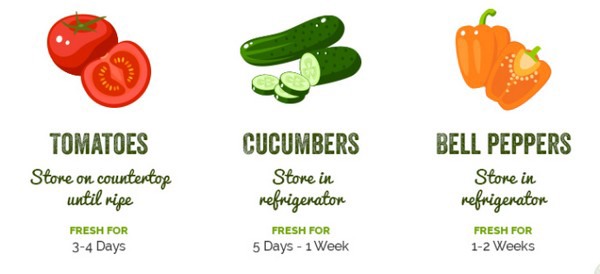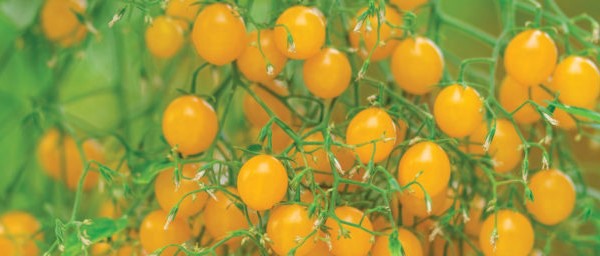When it comes to tomatoes, there are a lot of myths floating around that people believe are facts. So, it’s time to set the record straight and debunk some of the most common tomato myths. These are the most common ones:
- Tomatoes should be refrigerated
- Tomatoes are considered vegetables
- All tomatoes are red
- Only red tomatoes contain lycopene
- Tomatoes can only be grown in the summer
Storing tomatoes
Myth: Tomatoes belong in the refrigerator.
While it is best to put many fruits and veggies in the fridge, the kitchen counter is actually the best spot for your tomatoes to be stored! Storing your tomatoes on the counter will allow them to continue ripening and further developing their flavor.
The only time you should put your tomatoes in the fridge is when they have fully ripened and you want to extend their shelf life. If you place tomatoes in the fridge before they have fully ripened, they will develop a less vibrant flavor and a dry, mealy texture.

Tomatoes - fruit or vegetable?
Myth: Tomatoes are a vegetable.
This is one of the most controversial topics about tomatoes: are they fruits or vegetables? While many people believe tomatoes belong to the veggie family, they are technically considered fruits!
When people think of fruits, they almost always think of apples, oranges, pears, or peaches. This is because a common misconception is that fruits only grow on trees, or that fruits can be eaten as desserts. But a fruit is any produce item that has seeds, so since tomatoes have seeds, they are technically fruits.
Tomato colours
Myth: Tomatoes are red.
When you think of a tomato, red is the most common color that comes to mind. But there are thousands of tomato varieties being grown around the world, and those different varieties come in many unique shapes, sizes, and colors.
"At Nature Fresh Farms, we grow and market red, orange, yellow, brown, and green tomato varieties, but it’s not unheard of to find purple, pink, burgundy, or multi-color striped tomato varieties in a garden! From orange cherry tomatoes-on-the-vine, to yellow Tomberry tomatoes, to green beefsteak tomatoes, our tomato lineup’s color palette is vibrant and diverse."

Tomato nutrition
Myth: Only red tomatoes contain lycopene.
Lycopene is a well-known antioxidant commonly found in red fruits and vegetables like tomatoes, watermelons, pink grapefruits, and papayas. Incorporating lycopene-rich foods, along with a wide variety of fruits and vegetables in general, into our diets as often as possible may help to reduce our risk of diseases and slow the aging process.
Tomatoes are a unique superfood because every tomato variety, no matter the color, contains lycopene! Although the amount of lycopene may vary slightly from one variety to the next or may be more efficiently absorbed from one variety compared to another, all tomatoes will provide people with the health benefits of this powerful antioxidant.
Tomato growing season
Myth: Tomatoes only grow in the summer months.
Traditionally, tomatoes have had a shorter growing season since they were limited to being grown in gardens and on field farms, with peak production occurring in the summer months. But greenhouses have transformed the growing season for today’s tomatoes, making them a product that can be grown all year long. By growing produce inside climate-controlled greenhouses, it can grow consistently and flavorful tomatoes year-round. Say goodbye to the days of tomatoes only being available in July, August, and September – you can now enjoy them 12 months a year!

 NatureFresh Farms
NatureFresh Farms